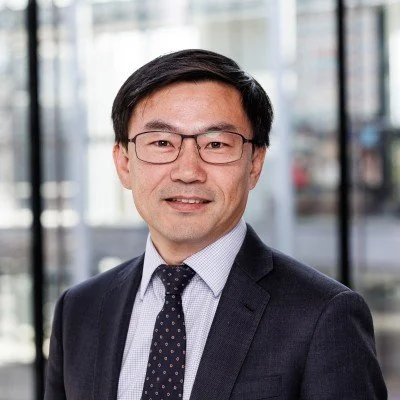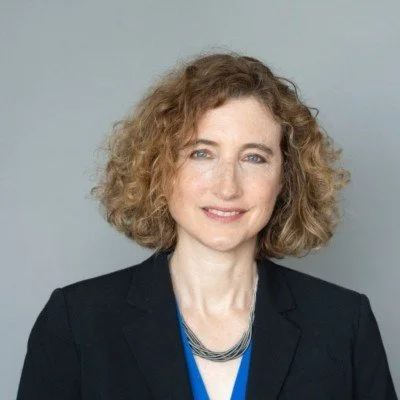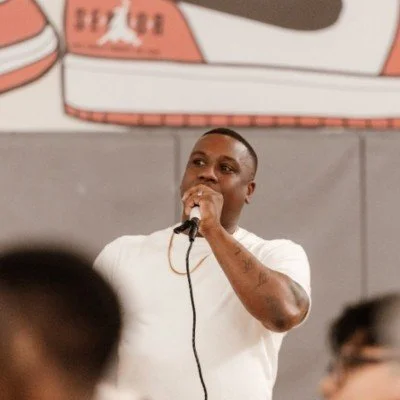Equipping Students for Tomorrow: Insights from the 2025 Expo Panel
Preparing Students in a Shifting Landscape was the title of this year’s Expo panel. To consider how to thrive in the unknown and constant change, we turned to four professionals from across the NYC youth-serving ecosystem to share their insights and experiences.
The future is shifting fast, and so is what young people need to thrive.
By 2027, 23% of jobs are expected to change, with 69 million new roles created and 83 million eliminated (World Economic Forum, 2023). According to reports, about half of teens already use AI companions regularly (Common Sense Media, 2025). Yet despite all these advancements, many young people don’t feel ready for it: only 51% of Gen Z feels equipped for the future, even though the majority remain optimistic about it (Walton Family Foundation, 2024).
At the same time, nonprofits are being called to innovate in a moment when the ground is shifting underneath us. Organizations serving young people are navigating new challenges around education, mental health, opportunity, and civic life — all while helping students build the skills and confidence they’ll need to lead in an uncertain world (America’s Promise Alliance, 2025).
Against this backdrop, the 2025 Expo panel “Preparing Students in a Shifting Landscape” explored what it will take to equip today’s young people for tomorrow’s realities and how schools and nonprofits can work together to make it happen.
The conversation brought together voices from across the NYC youth-serving ecosystem:
Alan Cheng, NYCPS Superintendent, Consortium, Internationals, NYC Outward Bound Schools
Kylie-Nilah Richardson, Former Student with Inspiring Minds & CEO, Chuck's Round Table
Sarah Jonas, Vice President, Children’s Aid
Trequan Bekka, Director of Career Connections, Good Shepherd Services
Adapting to a New Era of Learning
One theme ran through the entire conversation: change isn’t on the horizon — it’s here.
Alan Cheng reminded the audience that “technology, AI, and automation will be reshaping what students need.” He encouraged nonprofits and community-based organizations (CBOs) to get familiar with the Portrait of a Graduate outlined in New York State’s new graduation requirements — not just to identify alignment in the work, but to elevate it. “So much of your [nonprofits’] work is already truly embedded in that framework,” he said. “Now you get to say, as an organization, ‘I am teaching graduation requirements. These are the exact skills students need to do well.’”
Sarah Jonas built on this point, emphasizing that relevance and rigor grow out of connection. “When you connect community to the classroom — that’s where the rigor begins. That’s where the engagement begins. It’s where young people become authors of their own education and agents of change.”
Building Trust and Connection
From her perspective as both a student and a nonprofit leader, Kylie-Nilah Richardson spoke to the power of relationships in youth development. She shared a mantra she learned during her time with Inspiring Minds NYC: “Connect before you direct.”
For Kylie, authentic connection is the foundation of empowerment. When young people feel seen and supported, they’re more likely to take ownership of their learning, experiment with leadership and imagine new futures for themselves.
Navigating Information Overload
Panelists also explored the realities of growing up in what Trequan Bekka called “the age of information.” With so much content — and misinformation — at their fingertips, young people need new kinds of literacy to thrive.
Trequan noted that “there’s a lot of tendency to use that overwhelming amount of data to confuse everyone, so we have to teach our kids how to interpret information.” He and others stressed the importance of grounding current events in historical context to help students see how the past connects to their own futures.
Kylie knows this work all too well, as she developed her non-profit, Chuck’s Round Table, to teach political literacy. She also reflected on the emotional side of this digital reality. On social media, she said, students might scroll from a funny video to a traumatic world event in seconds. Teaching them to pause, process and engage thoughtfully is part of helping them build emotional and digital intelligence and resilience.
Connecting Learning to Real Futures
Trequan also highlighted how career-connected learning can help young people explore the world beyond the classroom – a sentiment that was shared by panelists and folks in the audience. By exposing students to what different careers look like day to day, programs can expand their sense of possibility and help them make more informed post-graduation decisions.
What We Heard
The conversation left the audience with a sense of optimism — about what’s possible when schools, nonprofits and communities work together.
-
Adaptability is essential. Preparing students for the future means helping them think critically, stay curious and confidently navigate change.
Relationships drive readiness. Building trust and care is the first step toward empowerment and agency.
Digital literacy is life literacy. Students need tools to interpret information, question narratives and engage with media thoughtfully.
Community is the classroom (or the program). When learning connects to real-world experiences and opportunities, young people find purpose and possibility.
-
With the shift from standardized tests to competency-based learning, how can we provide students with independent validation of their skills?
How can programs be made more accessible to students navigating changing political landscapes?
What changes can adults make in their approach to help youth become the adults they aspire to be?
How do organizations navigate internal resistance while evolving to meet students’ needs?
For staff who share identities with the students they serve, how can mental health be maintained and supported?
How can CBOs strengthen collaborations and partnerships with NYC Public Schools to better support students?
At SSN, we believe that equipping young people for success starts with community — with spaces where folks can learn from each other, test ideas and center the voices of students themselves. Conversations like this one remind us that the future of education and opportunity isn’t predetermined; it’s something we’re building together, every day.
This blog was written by Senior Communications Manager, Jamiee Nathaniel.







